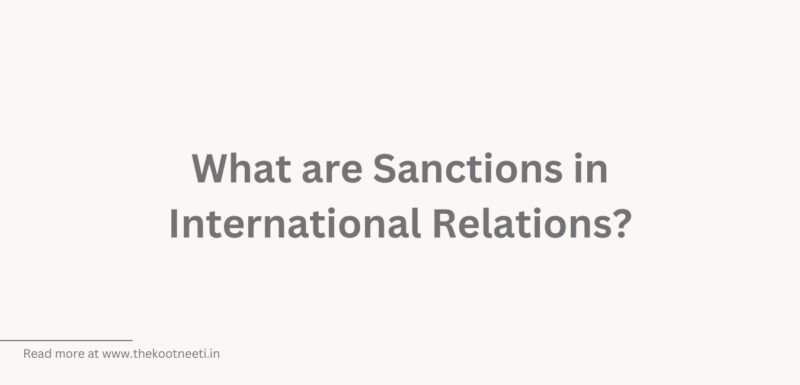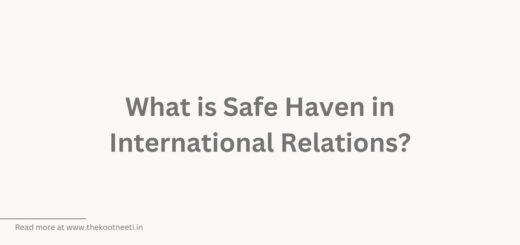What are Sanctions in International Relations?

Sanctions are measures imposed by states or international organizations in order to exert economic or political pressure on a target country or entity. Sanctions can take many forms, including economic sanctions, such as trade embargoes or financial restrictions, or diplomatic sanctions, such as the expulsion of diplomats or the suspension of diplomatic relations.
Sanctions are often used as a tool of foreign policy, and they are often imposed in response to actions or policies that are seen as threatening international peace and security, or as violating international law or norms. Sanctions can be imposed unilaterally by a single state or can be imposed multilaterally through the United Nations or other international organizations.
Sanctions can be controversial, as they can have a significant impact on the target country or entity, and can also have unintended consequences for other countries or for the global economy. Sanctions can also be seen as a form of coercion, and may be criticized for violating the sovereignty of the target country.
Efforts to address conflicts or issues through sanctions often involve a combination of diplomatic and economic measures, and may be accompanied by efforts to negotiate or mediate a resolution to the underlying dispute.
Type of Sanctions
There are several types of sanctions that can be used, including:
- Economic sanctions: These sanctions target a country’s economy by restricting or prohibiting trade, investment, financial transactions, and access to resources such as weapons or oil. Economic sanctions can include measures such as embargoes, freezing of assets, and the imposition of tariffs or quotas.
- Diplomatic sanctions: These sanctions involve measures such as the recall of ambassadors, the suspension of diplomatic relations, and the denial of visas or entry into other countries.
- Military sanctions: These sanctions involve the use of military force or the threat of military force to pressure a country to comply with international law or to change its behavior.
- Humanitarian sanctions: These sanctions are targeted at preventing human suffering and are implemented to prevent governments or non-state actors from using their power to block the delivery of aid to vulnerable population or to abuse basic human rights.
- Cyber sanctions: These sanctions involve the use of cyber-enabled economic or diplomatic measures, such as the imposition of financial penalties or the disruption of critical infrastructure, to pressure a country or non-state actor to change its behavior or comply with international law.
- Targeted sanctions: These sanctions are focused on designated individuals or groups and are intended to limit their ability to travel or access financial resources.


















